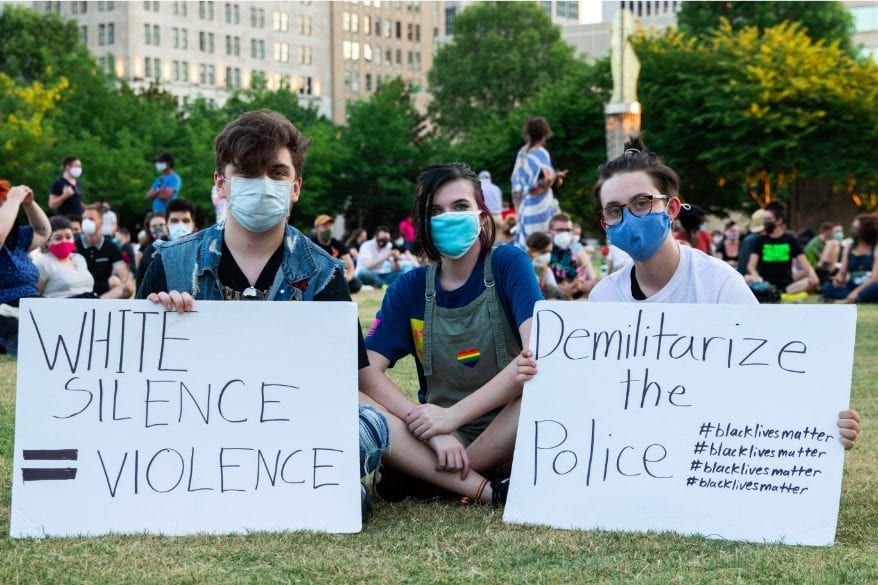NASHVILLE, Tenn. (July 15, 2020) - As LGBTQ+ events across the country are pivoting to join in solidarity with protests for racial justice, equality groups are issuing safety tips for those protesting peacefully. Among the tips are some basic guidelines to protect yourself from Coronavirus.
“Wear a mask to cover your nose and mouth, practice social distancing, bring and use hand sanitizer and evaluate the safest way to travel to the site,” Human Rights Campaign said in a posting on their website.
HRC went on to detail precautions protesters should take, and other things to bring for general safety, including water, milk of magnesia and towelettes in case of chemical irritants.
The ACLU also weighed in on COVID-19 safety precautions on CNN.com.
“Pack light,” staff attorney for the ACLU’s Speech, Privacy and Technology Project Emerson Sykes said. “Bring water and a snack at minimum. If you bring a bag, prepare for it to be searched.”
In a pandemic, wearing a mask can keep you from breathing in droplets containing coronavirus, according to Sykes. He says coming in close contact with other protesters could expose you to their spit or sneezes, which may carry the coronavirus.
“If you fear you’ll be arrested and will need legal help, memorize or write on your arm the number to a local or national law organization that could assist you in getting out of jail and handling your case afterwards,” Sykes said.
Some of the organizations on the front lines protecting protester rights:
Black Lives Matter
Community Justice Exchange National Bail Fund Network
The Associated Press tallies that more than 10,000 people have been arrested at protests in 140 major cities in the wake of George Floyd’s death. In addition to police violence, Coronavirus poses an additional threat to protesters. Nashville reverted back to Phase 2 of its reopening plan due to the highest number on record of COVID-19 cases in the city just this week.
This article has been supported by a grant from the Facebook Journalism Project for COVID-19 coverage.
